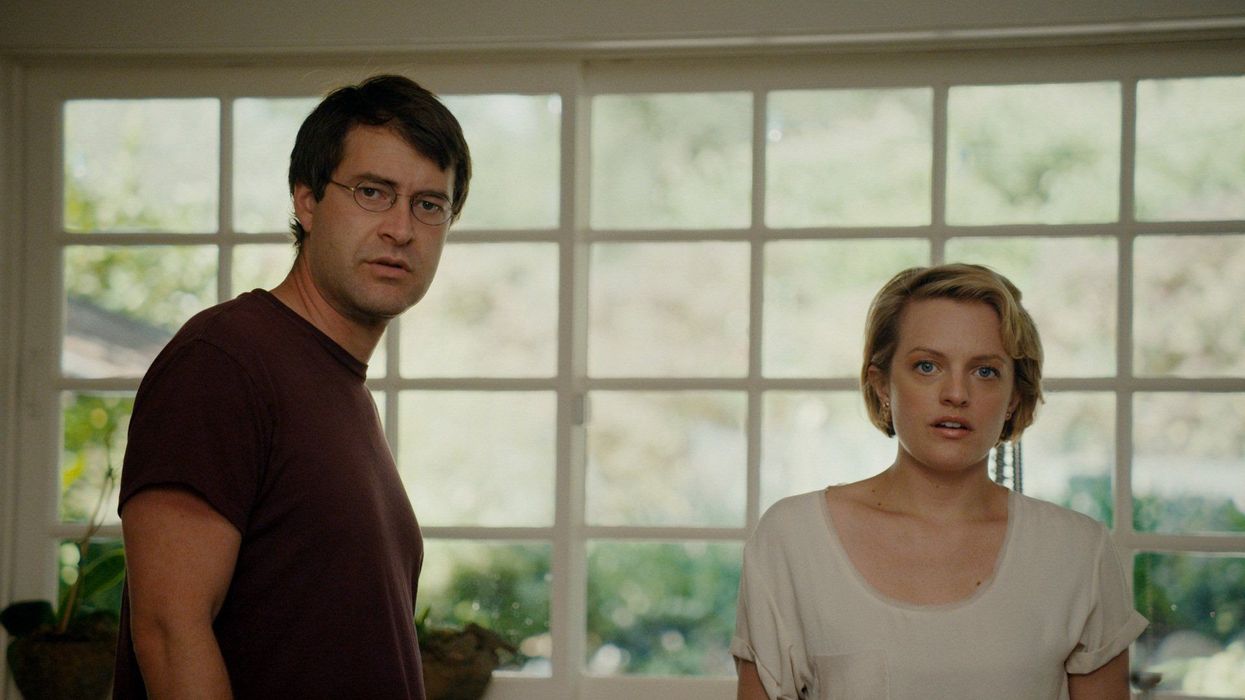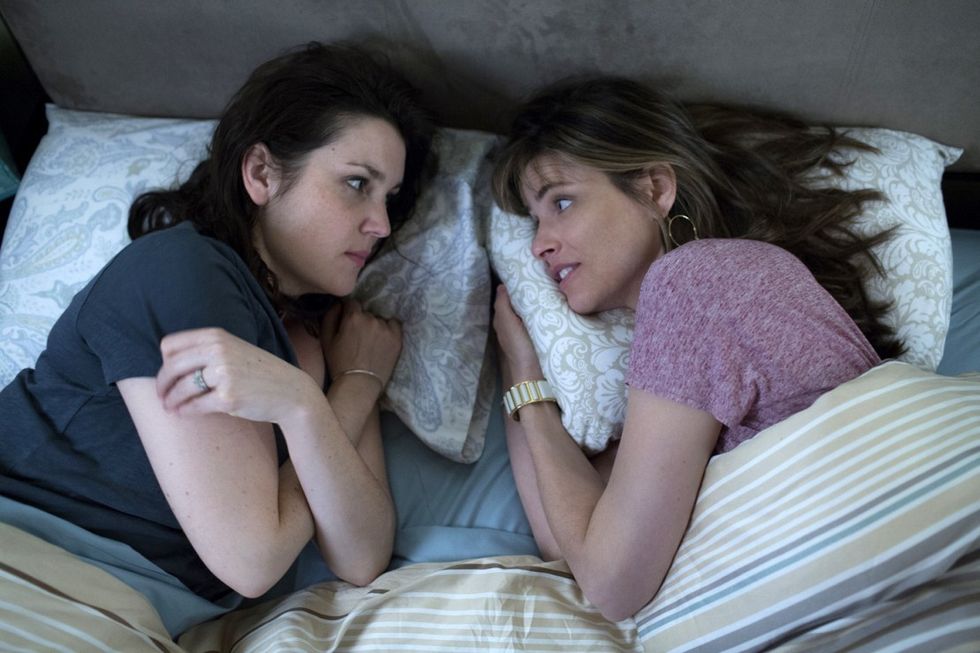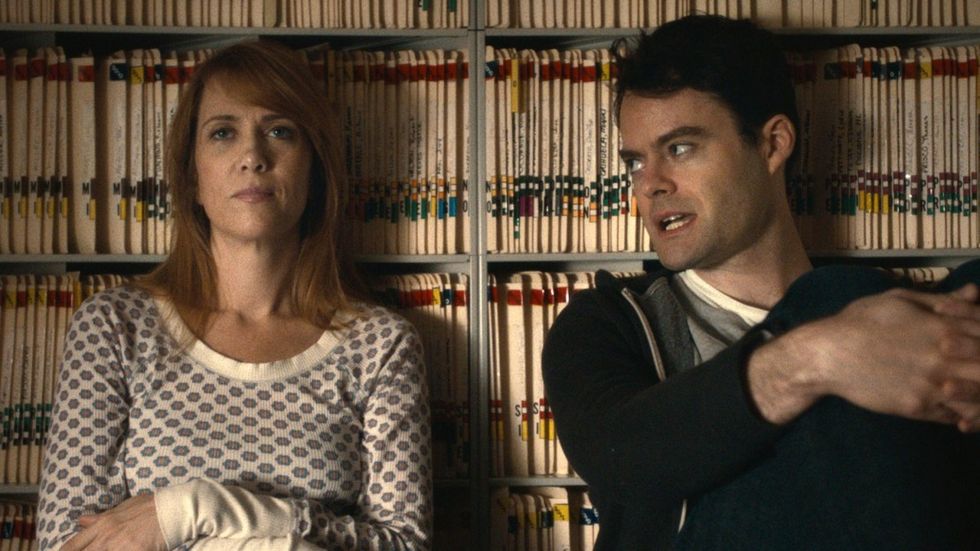The 7 Secrets of the Duplass Bros: 'Keep Making Sh*tty Shorts Until One Doesn't Suck'
"We never thought we would actually be able to make money making movies."

Writers-directors-producers-actors Mark and Jay Duplass moved to Austin, Texas in the early '90s with a goal of becoming filmmakers. In the years since, they've become two of the most prolific multi-hyphenates in the film industry.
The Duplass's first feature The Puffy Chair won the Emerging Vision Award at the 2005 SXSW Film Festival and they've since written, directed, and produced Cyrus, Baghead, and Jeff, Who Lives at Home (in addition to dozens more Producer and Executive Producer credits). More recently, they produced the Sundance 2015 success storyTangerine, released season two of their HBO show Togetherness, and are both acting regularly on television: Mark on the FXX show The League and Jay on the Amazon series Transparent. Finally, they produced two SXSW 2016 premieres, Rainbow Time and Aspergers Are Us.
Mark's keynote from SXSW 2015 should be required viewing for all filmmakers. To follow that up at SXSW 2016, both brothers sat down at a panel to have a frank and often hilarious discussion about filmmaking.
Video of the full conversation can be found below, followed our in-person takeaways.
"It took us a long time before we could [make] anything good."
1. They helped their friends
Jay: We got a call on our cell phone from a friend, Bryan Poyser (ed. note: a guest on our SXSW podcast about the Austin filmmaking scene) and he was about to make Lovers of Hate. The economics were he had $20,000 and he needed $25,000, and the $5,000 had dropped out. He was going to shoot the next day and he needed that $5,000. It was the first time we had $5,000, so we gave him the money, and he got into competition at Sundance. We did what we always did with our friends, which was watch cuts and give advice on what we thought. We became Executive Producers on that movie and we thought nothing of it at all.
Mark: It was really more like being a friend than being a producer.
Jay: And now we produce a lot.
Mark: We like to band up with all of our friends and lean on each other. Linus Philips is a friend of ours. He said, "I’ve got this idea," and we said, "Okay, we have some money, let’s go do it." Asperger's Are Us was directed by the cameraman I worked with on The League for years.… It was a really organic process to becoming quote-unquote producers.
"We don't have a ton of time to read scripts. It’s something that has to happen through osmosis."

2. They don’t traditionally develop material
Jay: We let things ooze in sideways. Linus, we’re really good friends with him, he had an idea that was really special, and he said, "I’m going to die if I don’t make this movie.” It’s about feeling that personal connection. We don't have a ton of time to read scripts. It’s something that has to happen through osmosis.
Mark: We don’t traditionally develop. People come to us with a solid project with a script that’s ready to go and it’s cheap to make. Or it’s something that Jay and I will have an idea about, The One I Love was something we started as a company. It’s not about taking meetings and bullshitting about things you may eventually make one day. It’s about being practical.
Jay: We don’t socialize, also. We’re parents, so we don’t have a lot of time —
Mark: Part of it is we’re awesome, too. Have you seen that movieThe Incredibles that was written about us?
"We have one foot in the system and one foot out. We’re not opposed to Hollywood, but no one’s going to give us $100 million to make a movie and let us do what we do."
3. They always choose the right budget level
Jay: We really don’t take anything on unless it’s obvious and personal. We need it to really matter and mean something on so many levels to take it on. With Baghead, we realized we could make it for $50k in Austin. We went into the pitch meetings like, “We’re making this movie in August in Austin and if you want to be part of it, great, but… it’s happening either way.” We have constantly employed that tactic of, "This movie is going to get made." And it could be made at several [budget] levels. But it almost always happens at that bottom level, and that has turned out to be a great thing.
Mark: We have one foot in the system and one foot out. We’re not opposed to Hollywood as a whole, but no one’s going to give us $100 million to make a movie and let us do what we do. We’re not at that level. But they’ll give us a small amount and some creative control. Our approach has always been to make a movie for an amount of money that the film will make back… We think, "Because this person’s in it and it’s in this genre and there’s a tremendous amount of creative freedom to making it, even if we shit the bed on this, we’re okay." We realized it’s kind of better if we make it on our own, and that’s why we do what we do.

"When we’re making a low-budget film, everyone on set, even if it’s the 4th PA, has some equity."
4. They give everyone on the crew equity
Mark: The ethos is the lower the budget you make the movie for, the more equity you can hand out to your cast and crew. When we’re making a low budget film, everyone on set, even if it’s the 4th PA, has some equity. Any movie you make under $200,000, the SAG agreement says you have to pay [crew members] $100 a day. What we’ll do is we’ll pay everyone on set [that rate] — actors, crafty, etc. Depending on what you’re bringing to the movie — star power, time, actor, editor, etc. — [different roles] get more back-end.
5. They collaborate as brothers
Jay: It’s very, very hard to make a great movie or a great TV show. We were just two brothers trying to make something good, and we’re still that. We have to have titles for studios and unions, but that’s still how we see it.
Mark: We show up on set at 8AM and look at each other and immediately know [which one of us] has it and who doesn’t [that day]. And that one steps forward and uses his energy and good sleep to move everything forward, and the one who’s taking a back seat will catch everything the other one’s missing.
6. They made a lot of "shitty" movies
Jay: I came to Austin in ’91. [Richard] Linklater and [Robert] Rodriguez were normal guys walking around in jeans and T-shirts. And they were artists.
Mark: We came from New Orleans where the artists were 50-year-old black guys singing jazz. We couldn’t do that. So we came here and made a shit-ton of bad films for the next 10 years.
Jay: We never thought we would actually be able to make money making movies. We graduated from UT and we were making movies with our friends in town. It really comes from just making stuff. It took us a long time before we could do anything good. Keep making shitty short films until one of them doesn’t suck one day.
"Keep making shitty short films until one of them doesn’t suck one day."
And don’t decide yourself if it doesn’t suck; let other people who are not your mom decide for you. The best film that we made that was something really good was something that had happened to me the day before. That was what made the breakthrough possible. Just mining what was special to your friends and your loved ones was what made it work for us. We wanted to be the Coen brothers of the ‘90s and it didn’t work for us. I was 29 years old when we made that first [good] movie, and the reason we made it was, I was like, “I gotta move on,” and Mark was like, “No, we gotta make something, we have mom and dad’s movie camera, let’s just shoot it."
Mark: I was very inspiring to Jay at the time… and I had zero ideas. I was like, "We have to make something! You have to figure out what it is."
Jay: See? He’s good at starting things up.
7. They're practical
Jay: I always encourage people to have a screenplay that you can cheat on your screenplay with. When you’re working on your masterpiece, then you can work on the side project that’s easy to get made. Let the ones lead that get the most traction, not the ones you’re most intent on making.
For more, see our complete coverage of the 2016 SXSW Film Festival. Listen to our podcasts from SXSW (or subscribe in iTunes):
No Film School's coverage of the 2016 SXSW Film Festival is sponsored by SongFreedom.











